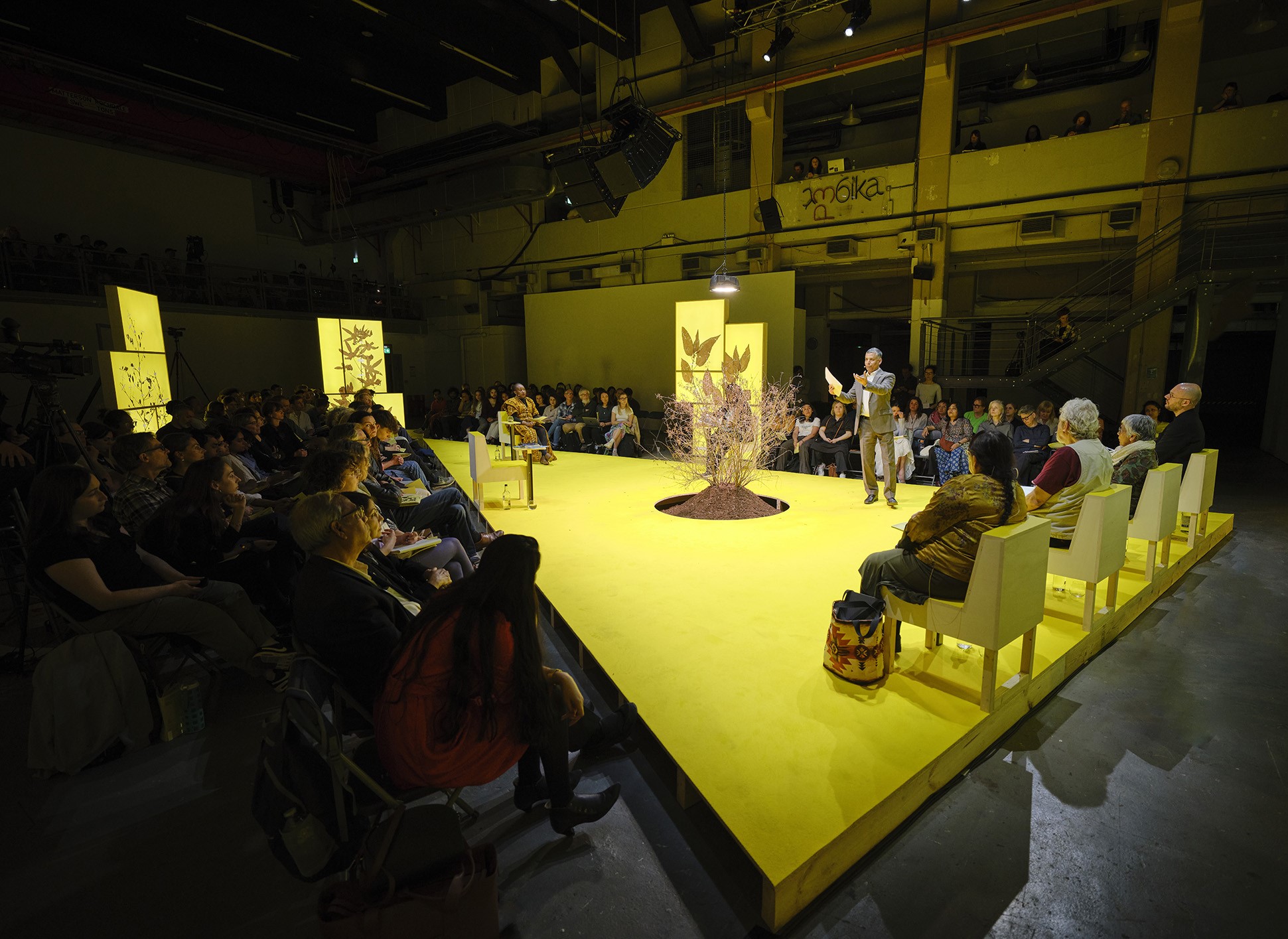
Leeds Arts University is about to turn its gallery into something you definitely won’t find on your average art crawl: a courtroom.
But this isn’t your local magistrates’ court. It’s the Court for Intergenerational Climate Crimes - and in the dock sits none other than the British East India Company.
From 31 October 2025 to 31 January 2026, the Blenheim Walk Gallery will host The British East India Company on Trial, an immersive exhibition that turns colonial history into a live, participatory reckoning. Created by Indian academic, activist and lawyer Radha D’Souza and Dutch artist Jonas Staal, in collaboration with Framer Framed (Amsterdam), the project gives a whole new meaning to the phrase art with impact.

A courtroom for the planet: First commissioned by London’s Serpentine Galleries earlier this year, this is the duo’s first-ever exhibition in Leeds, and they’re not holding back. The gallery becomes a functioning “tribunal”, complete with witness statements, visual evidence, and - crucially - a jury made up of you. Visitors can take a seat, listen to the proceedings, and then cast their own verdict on the Company’s legacy of ecological exploitation and colonial destruction.
At a special (invite only) opening event on 30 October (5-7pm), D’Souza herself will set out the legal case against the Company - before being questioned by legal scholars, historians and activists. It’s art, but it’s also something closer to civic theatre: a reminder that the courtroom is as much a stage for power as it is for justice.
The exhibition even brings its own “evidence room”: a collection of glowing lightboxes, developed with Kew Gardens, displaying botanical specimens that trace the Company’s centuries-long impact on landscapes and economies around the globe.
Placing colonialism on trial, Dr Marianna Tsionki, Associate Professor and University Curator at Leeds Arts University, calls the exhibition “urgent and conceptually rich.”
“It invites us to confront the intertwined legacies of colonialism and ecological collapse,” she says. “And to imagine new forms of justice that extend across generations - and species.”
It’s not the first time D’Souza and Staal have dragged institutions into the dock. The CICC has previously tried global heavyweights including Unilever, Airbus, and even entire nation states. Each hearing explores a radical idea: that climate justice isn’t just about carbon targets and treaties - it’s about accountability that stretches through time.
.jpg)
Blenheim Walk Gallery has made a name for itself as one of the North’s most thought-provoking cultural spaces, staging exhibitions that blend art, research, and activism. Here, art isn’t something to be looked at - it’s something to be reckoned with.
D’Souza, a professor of law and development at the University of Westminster, bases the CICC on her acclaimed book What’s Wrong with Rights? (Pluto Press, 2018), a fierce critique of the legal systems that let corporate and colonial powers off the hook. Staal, meanwhile, brings the political imagination - a visual artist whose projects, from Propaganda Art in the 21st Century to Extinction Wars, have turned galleries from passive spaces into platforms for debate.
Together, they’ve built a tribunal that dares to ask: What if the law finally looked backwards - and forwards - at the same time?
Blenheim Walk Gallery, Leeds Arts University, Blenheim Walk, Leeds, LS2 9AQ. 31 October 2025 – 31 January 2026
Header Image: Court for Intergenerational Climate Crimes: British East India Company on Trial. 2025. Artist: Radha D’Souza and Jonas Staal. Commissioned and produced by Serpentine Galleries Ecologies (Photo: Ruben Hamelink)